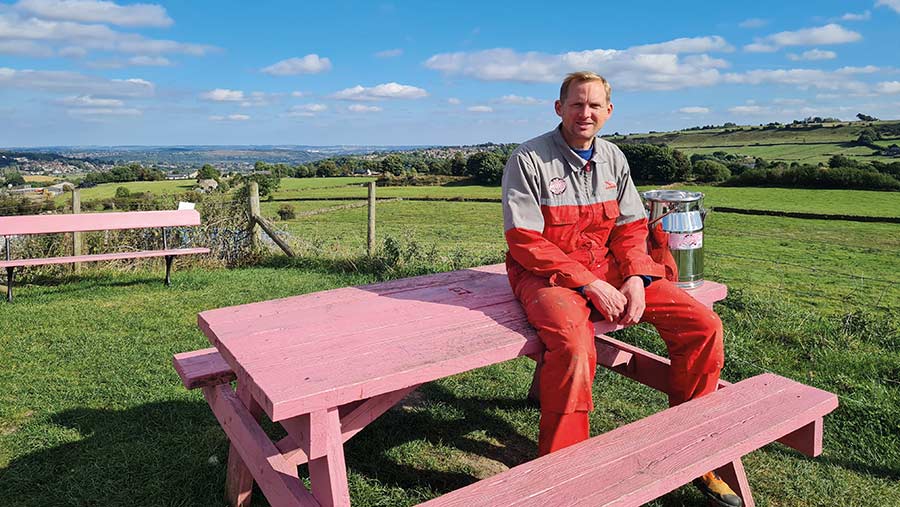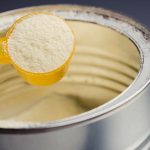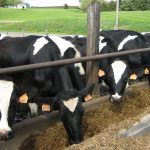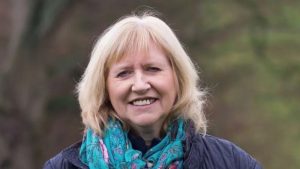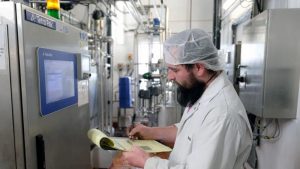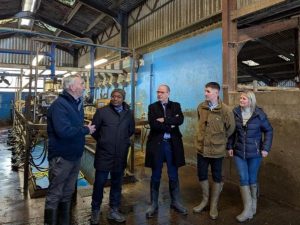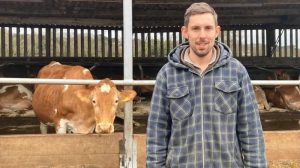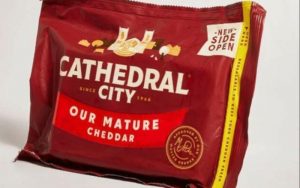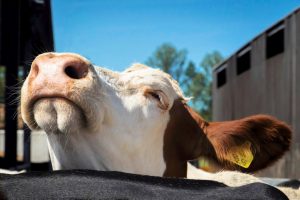
Transition farmer Eddie Andrew has an ambitious goal: to continue producing milk profitably from his 90-cow dairy herd – while reducing its reliance on fossil fuels.
The family-run 73ha farm on the edge of the Peak District National Park includes an ice cream parlour and shop – and a thriving milk delivery service to some 1,350 local homes and businesses.
Mr Andrew’s grandfather, Hector, started the farm with eight cows and borrowed money in 1947.
Today, it remains a close-knit family partnership between Eddie, his parents, Graham and Thelma, and his brother, Dan.
Transition goals
- Co-operating to reduce costs
- Establishing a new dairy
- Reducing carbon footprint
Customer expectations
As much milk as possible comes from grass, with some 65ha of the farm down to grazed pasture or silage.
The remainder is winter wheat, mainly for straw, with the grain rolled and used as home-grown feed, says Mr Andrew.
“We’ve usually taken three cuts of silage in the past, but the summers are getting warmer and wetter and the grass crops have been so heavy that we’ve only needed to do two cuts for the past two or three years.”
Rather than cows being housed, Mr Andrew says his customers expect them to be grazed most of the time.
The challenge is to balance this expectation while producing profitable milk at a price customers are willing to pay.
To keep costs down, the farm joined forces with two neighbouring farms that have similar herd sizes to build their own dairy.
Further collaboration and cost-sharing – including machinery and farm management – are likely within the next few years.
“It’s about three family farms working together. We are all about the same size and, ultimately, it could see all the cows moved to one site, with the youngstock on another. But for now, we are taking it one step at a time.”
Mutual benefit
At the moment, each of the three farms has its own feeder wagon, telehandler, tractors and muckspreader.
The idea is that costs could be cut if one farm provided the machinery for the other two – reducing overall overheads.
“One of our neighbours already runs a good contracting business. The plan is that they could come and do all the farm jobs – they have more modern kit and could get it done must faster than us because we stop to milk at each end of the day.”
Restructuring machinery use this way will reduce the farm’s need for fossil fuels.
So too will plans to build an on-farm anaerobic digester, which could help displace the use – and purchase – of fossil fuels for fertiliser, heating and electricity.
The farm already has close links with the Grantham Institute for Sustainable Futures at Sheffield University – working on initiatives which include replacing plastic milk bottles with reusable stainless steel churns.
“Being on the edge of Sheffield is a big benefit. It means we have lots of local customers – we can see thousands of houses from the farm – and we also have the expertise of the university on our doorstep.
“We are right on the edge of the Peak District National Park, close to our local customer base, and at the same time we are working with international experts on sustainability. In many ways, it’s a perfect location.”
